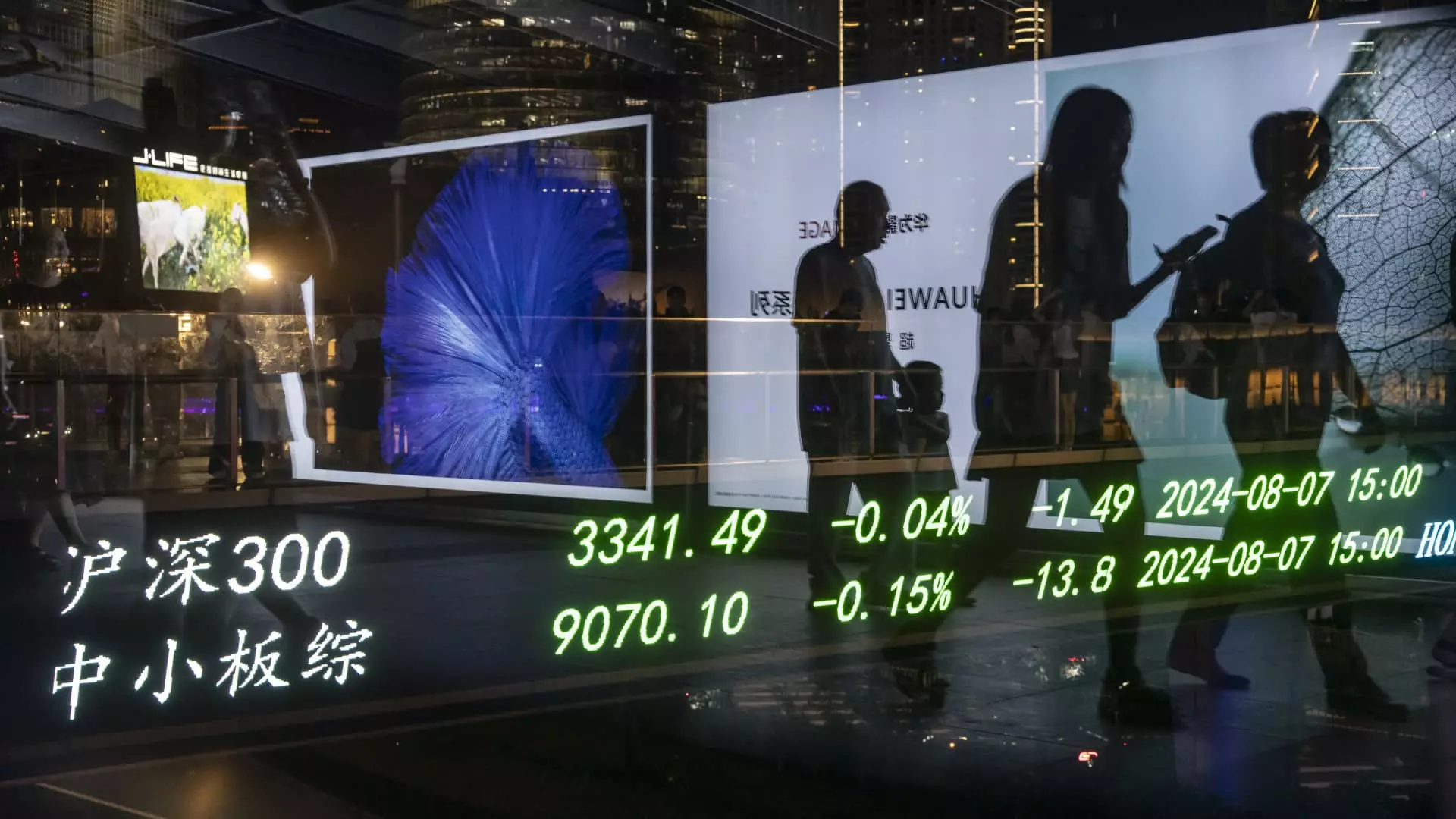The recent global market volatility has highlighted the unique position of China’s market, showcasing its resilience compared to other major markets. While U.S. tech stocks and Japanese equities experienced significant downturns, Chinese stocks demonstrated more stability. This disparity in performance sheds light on the attractiveness of Chinese equities amidst turbulent market conditions. The Nasdaq 100 and Nikkei 225 both recorded declines of approximately 2.5% over the last five trading days, whereas the Shanghai composite only suffered a 1.5% drop. The MSCI China index even managed to register a modest 0.2% gain during the same period. Hong Kong’s Hang Seng Index also outperformed, rising by 0.9%.
Investor Sentiment towards Chinese Stocks
As global markets experienced heightened volatility, international investors turned their attention towards Chinese stocks as a potentially lucrative investment opportunity. Fund flow data from EPFR revealed a significant increase in purchases of Chinese equities on August 5, followed by a slight reduction in holdings the following day. Despite this adjustment, international investors remained net buyers of Chinese stocks throughout the third quarter. The rationale behind this renewed interest in Chinese equities lies in the attractive valuations, economic stability, and growth potential within the Chinese market. William Yuen from Invesco emphasized the low correlation of the China stock market with the U.S. market, providing diversification benefits for investors.
The influx of foreign capital into Chinese equities has been a key driver of market performance, especially in light of the country’s economic indicators. The accessibility of mainland stocks, known as A shares, through stock-connect programs has enabled international investors to participate in the Chinese market. However, this year has witnessed a shift in investor sentiment, with foreign long-only funds and hedge funds actively divesting from A shares. Despite this trend, certain Chinese companies such as Montage Technology and CRRC have attracted net inflows, indicating pockets of optimism within the market.
The recent global market volatility was triggered by factors such as the unwinding of the Japanese yen carry trade and expectations of U.S. rate cuts. This environment has prompted investors to reassess their asset allocations and consider the attractiveness of Chinese stocks. The divergence in interest rates between the U.S. and China has contributed to the appeal of Chinese equities, particularly if the Federal Reserve proceeds with rate cuts. A weaker U.S. dollar makes the Chinese yuan more appealing to foreign investors, further bolstering the case for investment in Chinese assets. Additionally, China’s trade and inflation data indicate the resilience of domestic demand, despite some economic challenges. The upcoming data releases from the National Bureau of Statistics will provide further insights into the health of the Chinese economy.
Outlook on Chinese Investment Landscape
While Chinese stocks have demonstrated stability amid global market volatility, there are concerns about the underlying economic weaknesses and policy responses in China. The ongoing deflationary pressure and tepid policy measures have raised doubts about the long-term prospects of Chinese equities. Analysts caution that despite the recent market performance, investors may still favor U.S. financial markets due to their diversity and resilience during economic stress. The focus on resilience to external shocks in China’s policy agenda has raised questions about the country’s ability to address domestic challenges effectively. Despite the challenges, companies like Alibaba and Tencent have shown resilience in the face of market volatility, driven by prudent management and a focus on the Chinese consumer market. The outlook for Chinese stocks remains mixed, with both opportunities and risks associated with investing in the country’s equity market.

